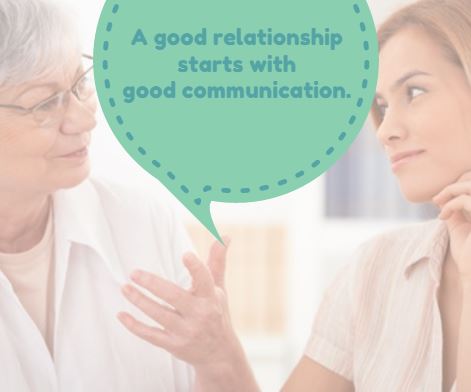We all know how important communication is in any relationship. Poor communication can lead to hurt feelings, misunderstandings and even complete mixups.
This is even more important in the caregiver-client relationship. The caregiver is working with a client in his/her personal space and completing very personal tasks. They may spend many hours together. There is likely a generational gap, and the caregiver may have to communicate about sensitive issues with the client.
EasyLiving caregiver training on communication includes:
- Avoiding stereotyping older adults and using patronizing language
- Techniques to improve face-to-face communication (minimizing background noise and distractions, non-verbal cues/behavior, good listening skills, vocal emphasis, verifying comprehension)
- Expressing empathy, eliciting and “conversation starter” skills (i.e. open ended questions, coming up with topics)
- Providing information, keeping clients informed and actively participating in decisions
- Techniques to deal with sensitive subjects or emotions
- Customizing care and communication to client preferences and values
- Strategies for overcoming client challenges (i.e. using visual aides with hearing-impaired clients, communicating with someone with dementia)
- Privacy/confidentiality
- Appropriate boundaries
A caregiver can become an invaluable companion for the client, helping to improve quality of life in many ways. This can only happen with good communication, as emphasized in our training and care planning process.







